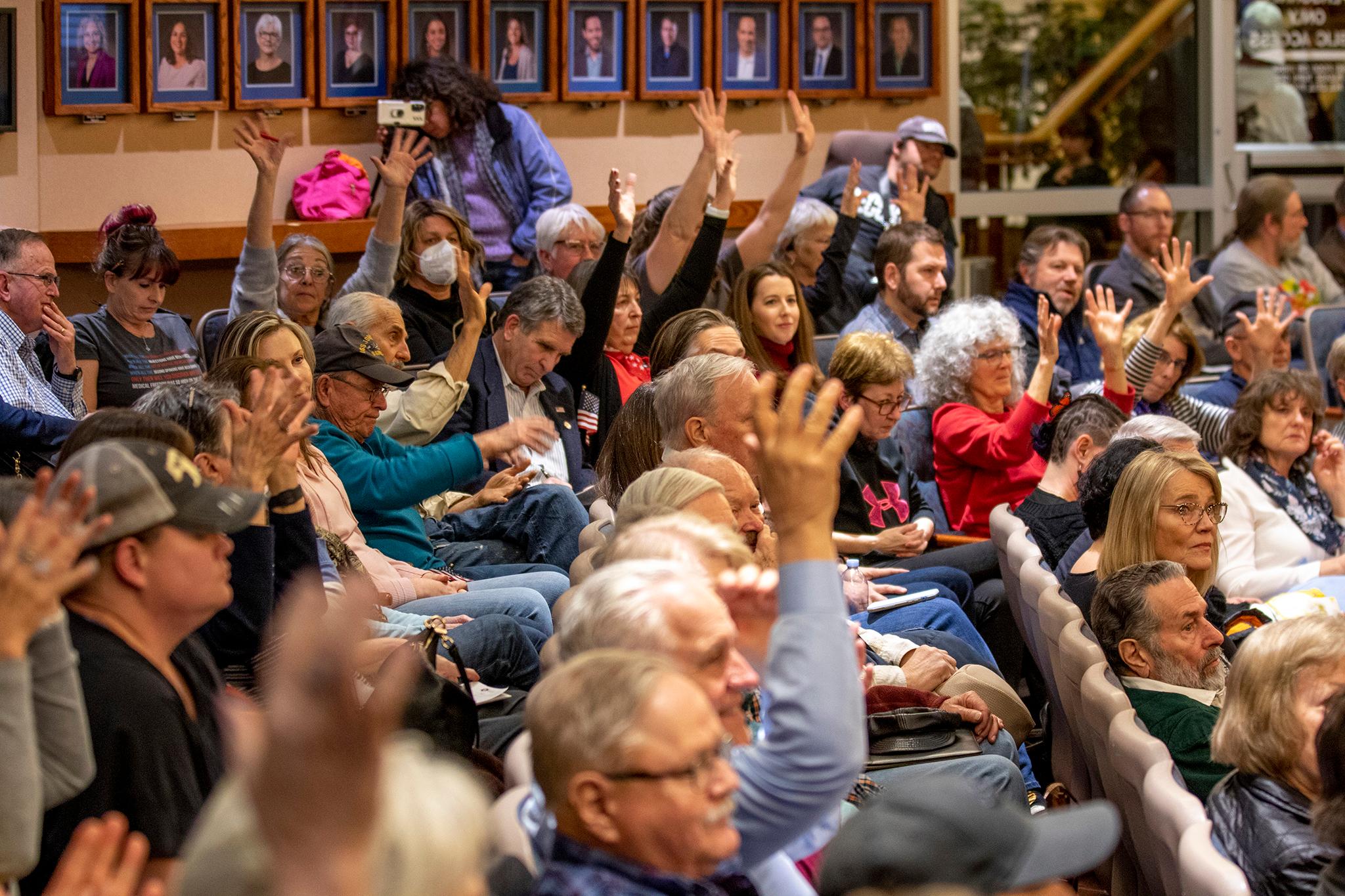
Dozens of people gathered hours before Lakewood’s city council meeting Monday night, and as the meeting time approached, the chambers and overflow areas were full, with people sitting all the way up the staircase going up to the second floor of the city administration building.
It was an unusual scene at city council but it was an example of something becoming more common in Colorado’s cities. Along the Front Range, some residents see Denver spending large sums of money in order to support new immigrants, and are increasingly voicing concerns the same will happen in their cities. In El Paso County, commissioners declared the area would not become a “sanctuary,” and in Aurora councilors also heard concerns on the issue Monday night.
In all these places, the concerns are largely premature, since neither Lakewood, Aurora nor Colorado Springs has taken steps like opening shelters or providing significant monetary assistance to arriving immigrants. But the residents voicing concerns also see their opposition as preemptive: In Lakewood, they want city leaders to take steps to actively deter people from coming, for example by ramping up policing.
Denver has helped 38,505 new immigrants who have arrived since late 2022, spending about $42 million on temporary shelter and other services. Thousands of the new immigrants have chosen to move onto other cities. Some have gone to Aurora, where a coalition of nonprofits has provided services. On Feb. 9, Denver Mayor Mike Johnston announced temporary cuts to some city services in order to fund the immigration response.
In dozens of public comments and in interviews outside council chambers, people expressed fears about crime and the costs of pubic services and housing.
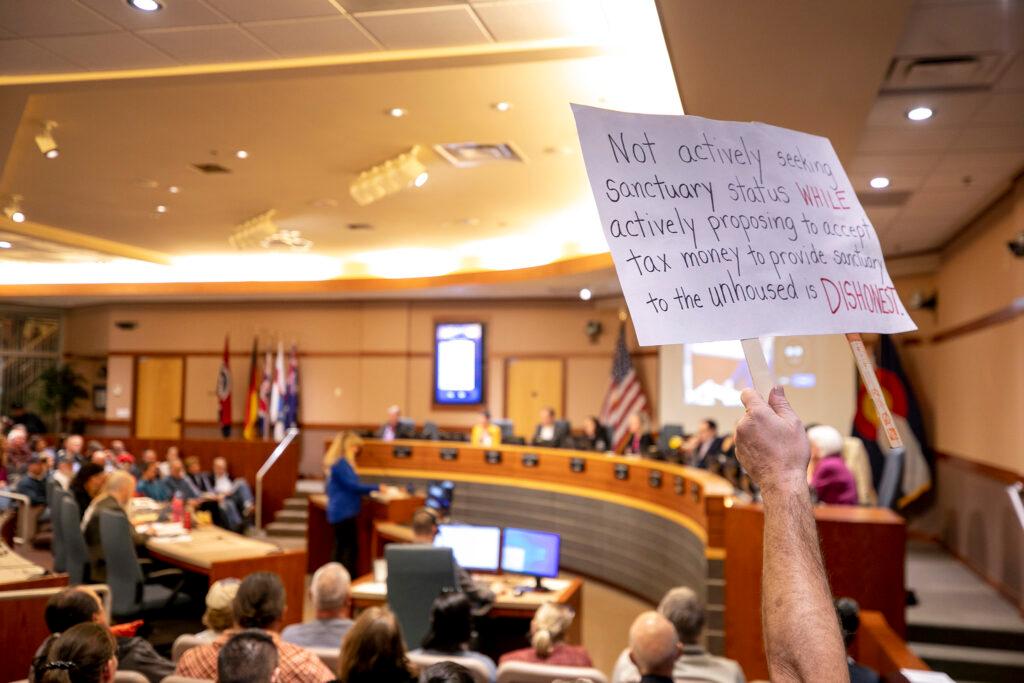
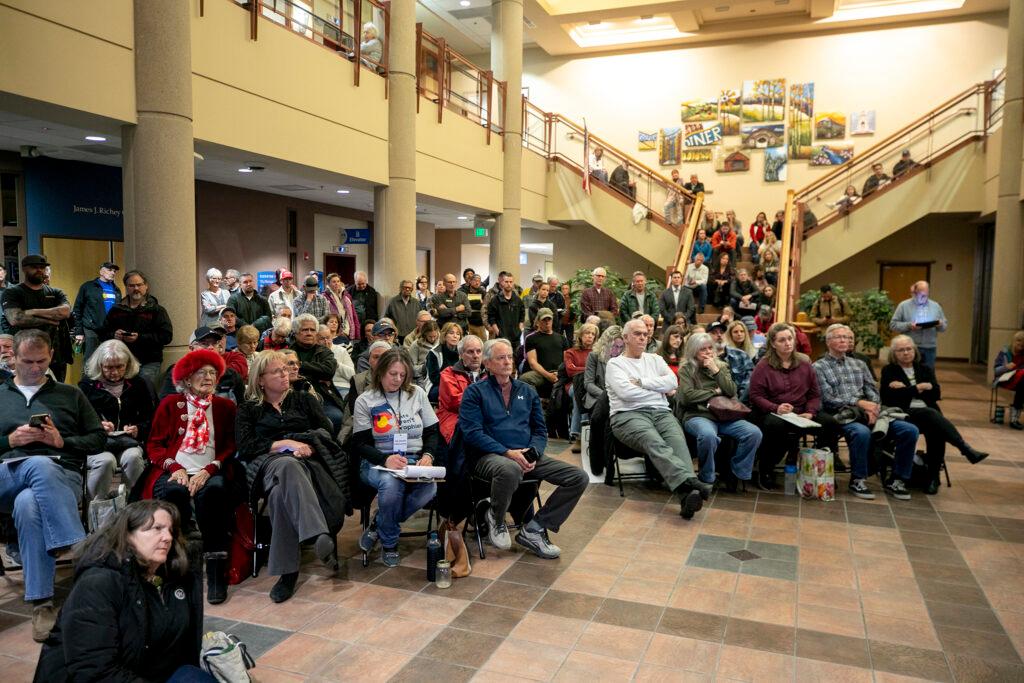
Resident Dawn Austin spoke to the council, saying, “What you see tonight is informed voters who have watched Denver’s decline, and don’t want the same here.” A couple dozen people in the crowd waved their hands in the air in support. A few of the signs in the crowd read, “Don’t Denver Our Lakewood.”
Others said they didn’t like getting approached in grocery store parking lots and at intersections by new immigrants who were looking for work or to wash windshields. Many referred to the newcomers as “illegal immigrants,” although some are utilizing the limited legal means available to try to stay in the country, like seeking asylum.
“This community cannot afford this,” said Ramey Johnson, a former city councilwoman who has helped organize the people voicing concerns. “It’s not that we are not a compassionate community. We are,” Johnson said. “But we cannot care for the world.”
Outside the building, Lori Cutunilli said she came despite the fact that she doesn’t live in Lakewood. She lives in Summit County and worries “if they can push it out into Lakewood, they’re going to push it out everywhere around our state.” She held a sparkly sign with one word on it: Recall. She said she hasn’t started any recall effort, but she wanted to send a message.
A smaller but equally passionate group of residents showed up to voice their support for homeless services and the compassionate treatment of new immigrants. Some stood outside with monarch butterfly pins and capes, a symbol of migration.
Sandie Weathers said she is a daughter of an immigrant from Mexico. About the newcomers, she said, “These folks are just trying to survive.” She said she appreciates concerns about how taxpayer money is spent, but she believes the U.S. owns part of the responsibility for creating the circumstances that have driven people to leave their home countries.
She says she has experienced racism firsthand in Lakewood, and sees it in the opposition to those arriving from Central and South America. “That’s really why I’m out here today, because I don’t want that narrative to win.”
“Anybody who would fight for the impoverishment, the hunger, the desolation of another human being, they need to re-look at their life, in my opinion,” said Amber Varwig. “Migrants have traveled so far trying to achieve something that all of us take for granted. And I think it’s ok to say, ‘How about rights for me, and rights for thee?’”
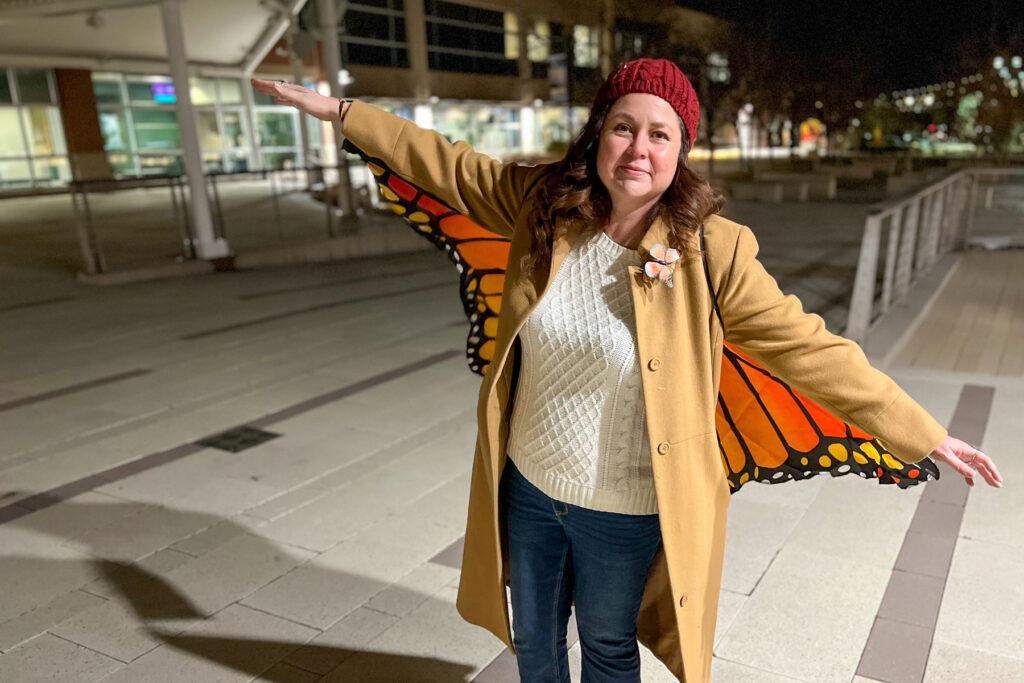
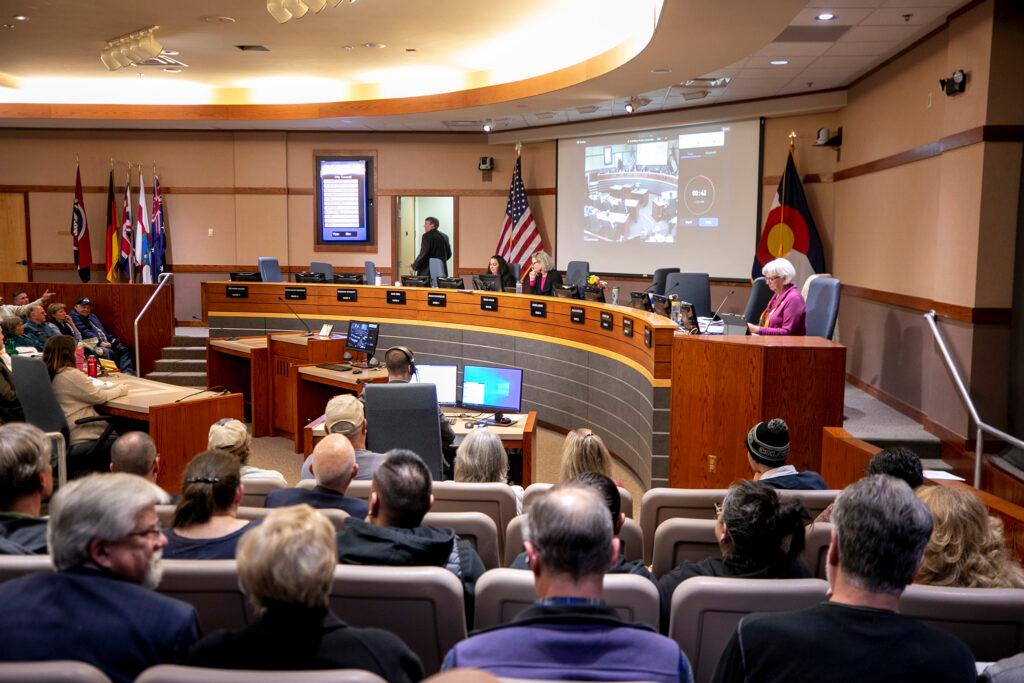
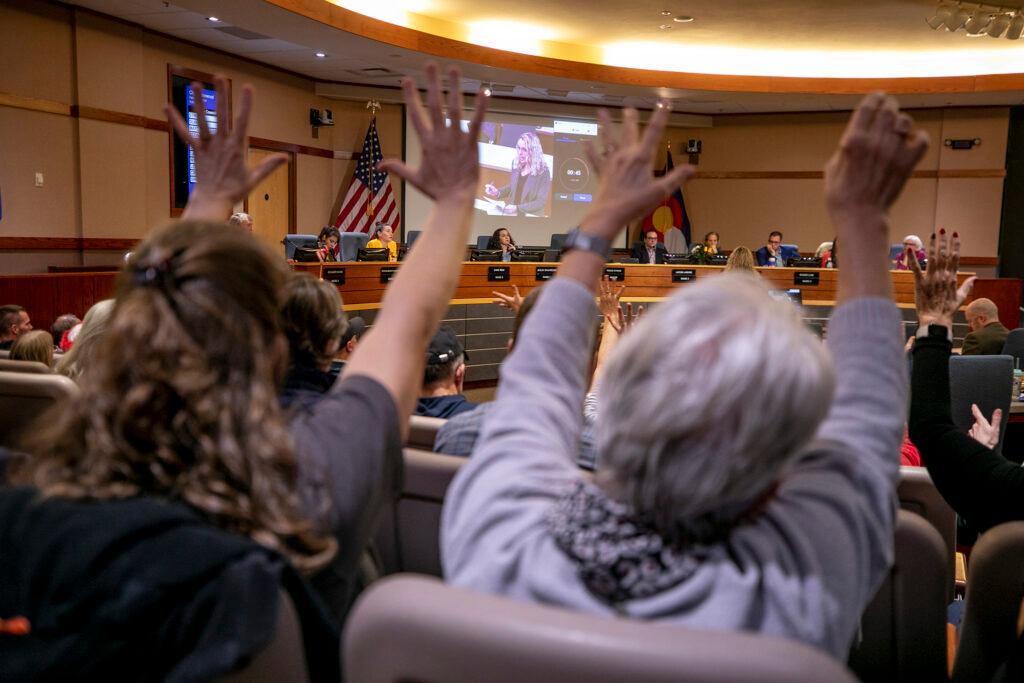
The opposition started over a meeting between Lakewood and Denver leaders about arriving immigrants.
In January, Lakewood’s city council asked city staff to meet with representatives from Denver, “to determine how Lakewood can learn about the migrant crisis and discuss potential opportunities to partner as a good neighbor responding to the increasing migrant population arriving in Denver,” according to city council.
The premise of the meeting raised alarm bells for some people who speculated on what it could mean to be “a good neighbor.” They suggested, for example, that city or county resources could be used to house new immigrants, and they suspected that a new homeless services center in Lakewood, which was partly funded by state grants, could be a response to Denver’s overwhelmed shelters.
Mayor Wendi Strom said the homeless navigation center has been in the works for a long time and is not specifically meant to serve new immigrants. City councilors said just nine people served so far have been newly arrived immigrants.
In response to the residents’ concerns, which were voiced at a recent meeting, Lakewood put out a statement this month “regarding incorrect community information.” It said Lakewood was not planning to offer housing, and that no one on city council had proposed becoming a “sanctuary city” — a term that has no legal definition but has become politically divisive between those who want strict immigration enforcement, and those who want to allow undocumented people some of the same privileges as other residents.
During Monday’s meeting and in a memo posted online, Lakewood’s city manager reported to the council that “Lakewood is not being solicited for hotel/motel or congregate housing support.”
City councilors explained that the city and county are not even discussing the possibility of housing people in vacant school buildings. Council member Richard Olver says he has taken the concerns seriously and investigated the question, and concluded “we are not talking about doing that at all,” noting that zoning doesn’t allow it. But despite his assurances, some residents remained convinced there was a plan for housing and resources.
The staff report also indicated that while Denver is actively helping new immigrants travel to other U.S. cities and states where the new immigrants want to go, Denver’s metro-area neighbors are not among the participating cities.
Instead, staff say, Denver has asked Lakewood for two things: get the word out about resources that Denver has made available; and encourage Lakewood residents to volunteer and/or donate to Denver’s established programs.
Residents could choose to become host families for new immigrants; donate certain in-demand items of clothing; volunteer for the city or for nonprofits or faith-based organizations involved in the response; or donate money. State and Denver leaders have encouraged donating to the Newcomers Fund, which is distributing money to organizations.
Tanya Lasko lives in Lakewood and sat in the audience at city council Monday night. She has donated suitcases, blankets and water bottles through the social networking site NextDoor to support new immigrants, and attended Monday’s meeting to hear what Denver and Lakewood had discussed, and whether Lakewood had already made a decision about if or how it would respond.
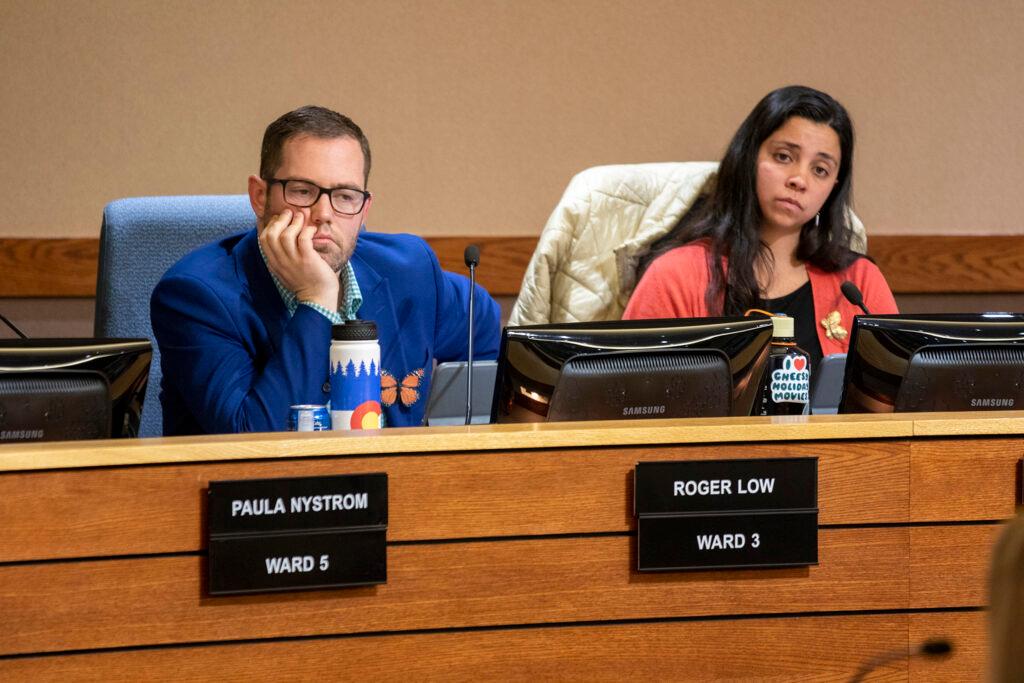
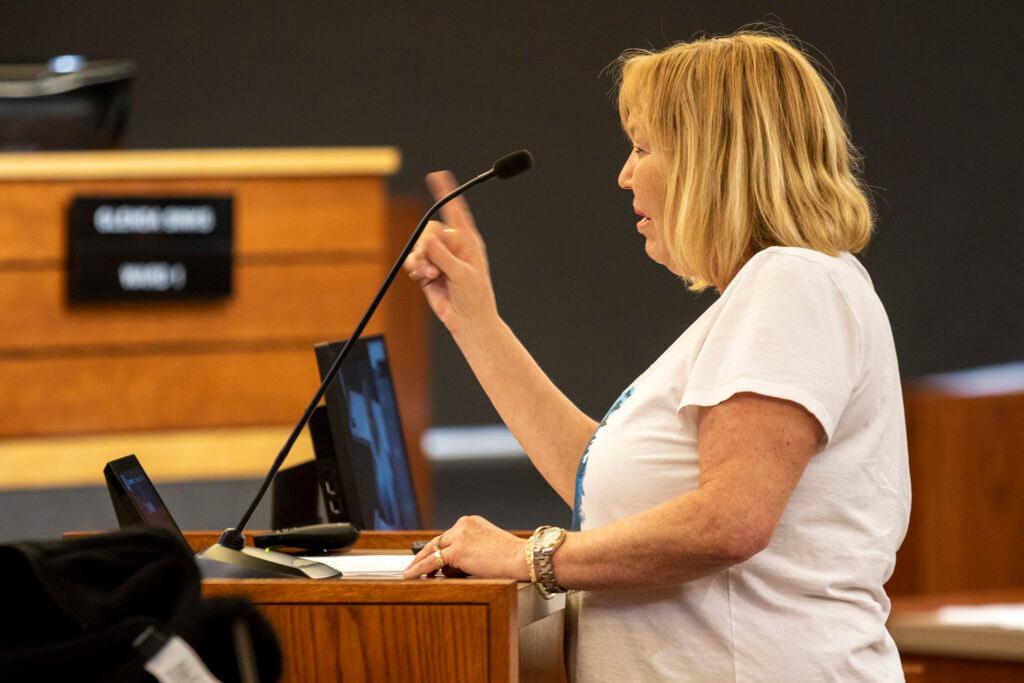
“I’m encouraged to find out that Lakewood has not agreed to anything at this point. I like the fact that they gave us ways to participate in the problem if we want to; that they didn’t decide that we have to help, but we are given lots of options to be helpful if we want to choose that,” she said.
Lakewood does not plan to spend money on services for new immigrants, according to the mayor.
Strom said in an interview with CPR News that she has gotten “so many” emails from residents, and the message she’s getting is, “People want to feel like their services are not going to be cut because of Lakewood now spending money on people that are brand new and from a completely different country.”
The newcomers interviewed by CPR News have said they are seeking safer lives in the U.S., as well as economic opportunities to better their families’ lives. Many plan to apply for asylum, but will likely wait several years to get a hearing, and are sometimes not eligible to work legally in the meantime.
While Lakewood is not committing resources, Strom said the city does support efforts to get the federal government more involved in the response. She said a group of Colorado mayors is sending a letter to the state’s representatives in Washington to ask for more federal funding, legal services for new immigrants, and accelerated work authorizations.
The desire for more federal leadership was echoed by residents on both sides of the issue Monday night. Those opposed to serving new immigrants want President Biden to own the current situation. And Weathers, who wants to support new immigrants, said she wants the federal government to take the lead, but “Lakewood is kind of stuck in the middle, but we have to do what we can.”
A recent effort to reform federal immigration laws died in Congress.
Lakewood’s disinterest in supporting new immigrants belies its liberal city government.
Lakewood residents elected Strom in November 2023 with the support of several prominent Colorado Democrats. Democratic candidates also won the five city council races on the city’s November ballot. Several of them wore butterfly pins on their lapels Monday night.
But voters in Colorado’s fifth largest city, just west of Denver, have also supported ballot measures with more conservative and libertarian leanings, like in 2019 when voters approved a “strategic growth” plan to control the construction of apartments and other housing and rejected municipal trash services.
Strom believes some longtime Lakewood residents specifically moved there because it was not a big city. As the whole metro area has grown, “they're being faced with city related problems, whether it be traffic or crime or just lots of people, right?” she said, adding that some of the people she’s heard from recently about new immigrants are people who have historically been active in campaigns to limit growth.
That tension was apparent Monday night, and will continue to be heard throughout 2024, as immigration is a dominant issue in the presidential election.
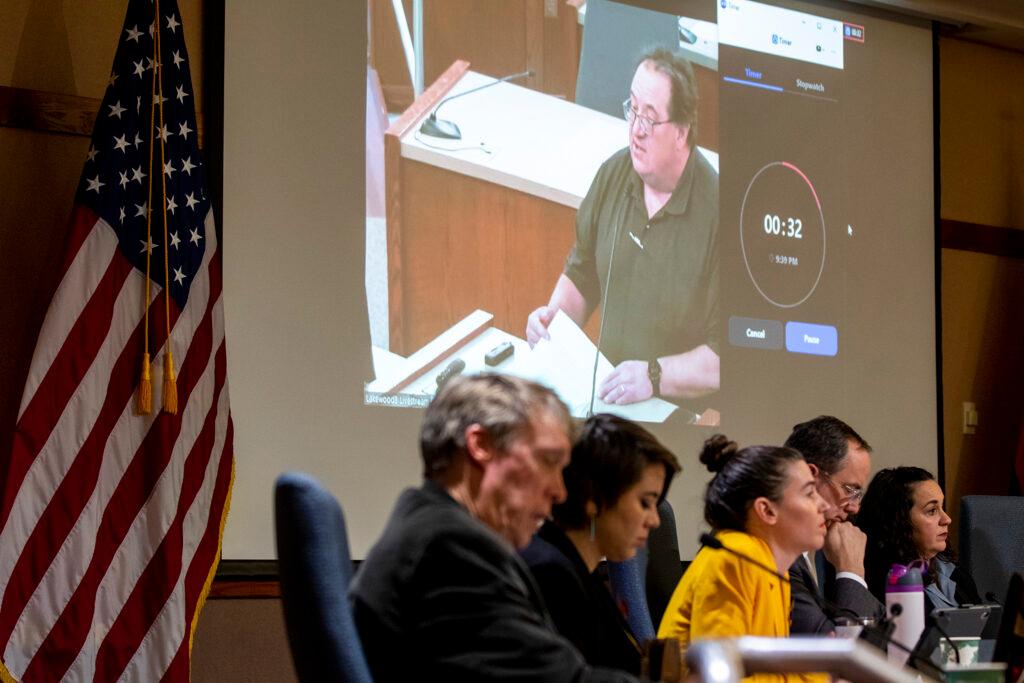
- Why Colorado isn’t a ‘sanctuary’ state despite its strong immigrant protection laws
- As Colorado stretches to fund help for migrants, Democrats ask for more federal money. But there’s a catch
- Parks & Rec and Denver Motor Vehicle will reduce services as Denver struggles to fund its new immigrant response
- Why many new immigrants in Denver can’t get federal work permits — at least right away









